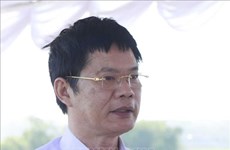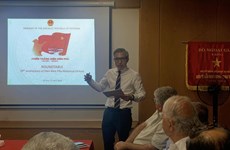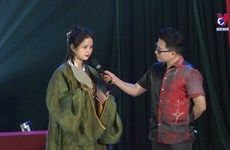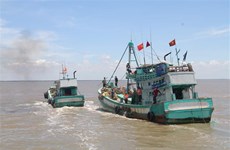British historian highlights significance of President Ho Chi Minh’s trip to London
President Ho Chi Minh’s three-year trip to London more than a century ago had an important meaning to his revolutionary career, British historian John Callow, former Director of Archives, Marx Memorial Library, has said.
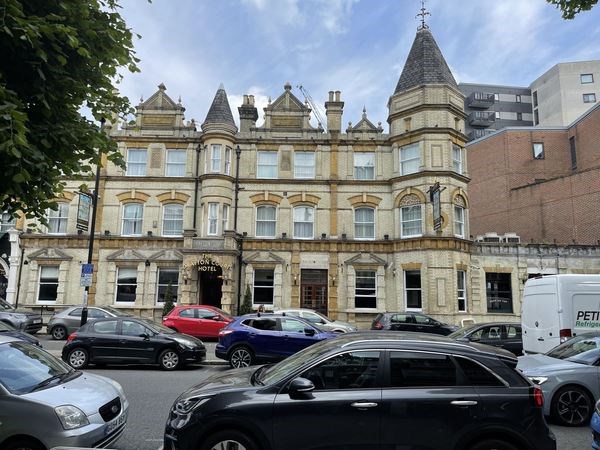 Drayton Court Hotel in which President Ho Chi Minh toiled in the kitchens in 1914 (Photo: VNA)
Drayton Court Hotel in which President Ho Chi Minh toiled in the kitchens in 1914 (Photo: VNA)Talking to Vietnam News Agency, Callow held that London was a destination for Ho Chi Minh after a long journey to many other places because that was known as the workshop of the world. It was the cradle of the Industrial Revolution, the centre of the greatest empire in terms of land mass that the world had ever known, and the world's top financial centre. His journey is intensely practical and a way to discover the politics, the economics and the cultures of very different civilisations, the scholar stated.
He stressed that it was a brave step for Ho Chi Minh to leave his homeland with a desire to learn, to witness with his own eyes the fast changing world, and to see for himself the bases of the imperial power.
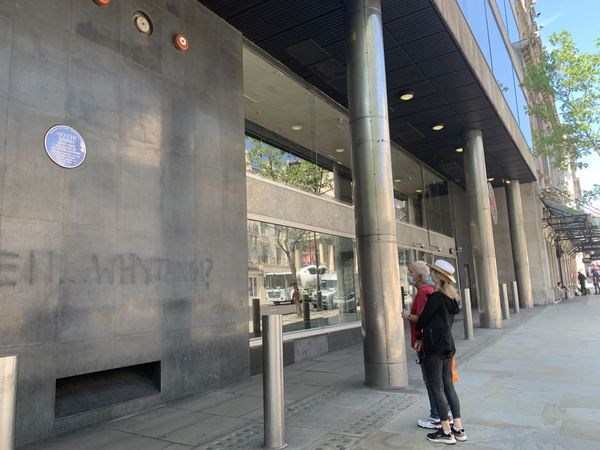 The plaque of Ho Chi Minh at New Zealand House (Photo: VNA)
The plaque of Ho Chi Minh at New Zealand House (Photo: VNA)In Thailand, Nguyen Thi Xuan Oanh, a member of the management board of the Ho
Chi Minh Monument Site in Udon Thani province said President
Ho Chi Minh is admired and respected among overseas Vietnamese youngsters.
Speaking to Vietnam News Agency in Thailand on the occasion, Oanh said that older generations of Vietnamese community in
the province have worked to maintain Vietnamese language for their offspring,
ensuring that they know well about Vietnam and the late President. She expressed her hope
that the Party and State will coordinate with the Vietnamese community in Thailand
to teach Vietnamese language to the third and fourth generations of overseas
Vietnamese in Thailand, thus maintaining and promoting the national tradition
in the country.
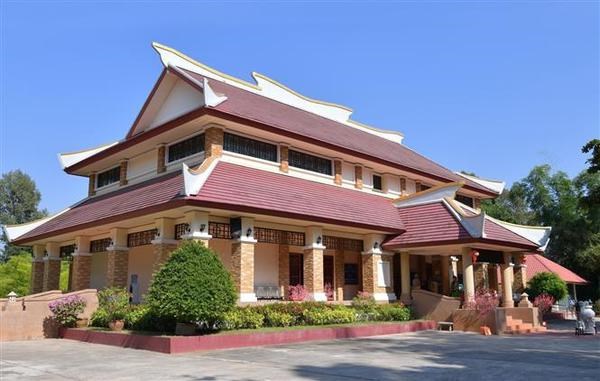 Ho Chi Minh Monument Site in Udon Thani province (Photo: VNA)
Udon Thani, the largest province in the northeastern region
of Thailand, is hosting the largest number of overseas Vietnamese in Thailand.
Ho Chi Minh Monument Site in Udon Thani province (Photo: VNA)
Udon Thani, the largest province in the northeastern region
of Thailand, is hosting the largest number of overseas Vietnamese in Thailand.
President Ho Chi Minh arrived in the province in July, 1928. During his stay until 1929, the leader used the name of “Thau Chin” and resided in Nong Bua area, which is near the train station of Udon Thani province today. He then moved to Nong Om hamlet in Chiang Phin commune, Muang district, which is 12km from Udon Thani.
With the support of overseas Vietnamese and locals of Thailand, the leader worked to reinforce the “Hoi Viet Nam Cach mạng Thanh nien” (Vietnamese revolutionary youth union) in the country. Despite his short time in the locality, the President won deep sentiments from the Vietnamese and local communities there. In 2002, the local administration and the Vietnamese Association in Udon Thani coordinated to build a 10,000sq.m monument site commemorating the Vietnamese national leader.
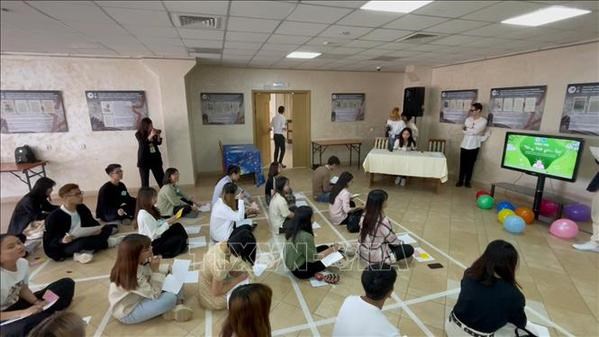 The“rich and beautiful Vietnamese language” contest draws a large number of Vietnamese students (Photo: VNA)
Meanwhile, to mark the 132rd birthday of President Ho Chi
Minh, a contest themed “rich and beautiful Vietnamese language” was held for
Vietnamese students in Kazan city, the Republic of Tatarstan in Russia. The
contest aims to create an interesting playground for students to explore the
beauty of the Vietnamese language, thus promoting traditional culture and the
Vietnamese language among the Vietnamese community./.
The“rich and beautiful Vietnamese language” contest draws a large number of Vietnamese students (Photo: VNA)
Meanwhile, to mark the 132rd birthday of President Ho Chi
Minh, a contest themed “rich and beautiful Vietnamese language” was held for
Vietnamese students in Kazan city, the Republic of Tatarstan in Russia. The
contest aims to create an interesting playground for students to explore the
beauty of the Vietnamese language, thus promoting traditional culture and the
Vietnamese language among the Vietnamese community./.
 Ho Chi Minh Monument Site in Udon Thani province (Photo: VNA)
Ho Chi Minh Monument Site in Udon Thani province (Photo: VNA)President Ho Chi Minh arrived in the province in July, 1928. During his stay until 1929, the leader used the name of “Thau Chin” and resided in Nong Bua area, which is near the train station of Udon Thani province today. He then moved to Nong Om hamlet in Chiang Phin commune, Muang district, which is 12km from Udon Thani.
With the support of overseas Vietnamese and locals of Thailand, the leader worked to reinforce the “Hoi Viet Nam Cach mạng Thanh nien” (Vietnamese revolutionary youth union) in the country. Despite his short time in the locality, the President won deep sentiments from the Vietnamese and local communities there. In 2002, the local administration and the Vietnamese Association in Udon Thani coordinated to build a 10,000sq.m monument site commemorating the Vietnamese national leader.
 The“rich and beautiful Vietnamese language” contest draws a large number of Vietnamese students (Photo: VNA)
The“rich and beautiful Vietnamese language” contest draws a large number of Vietnamese students (Photo: VNA)








